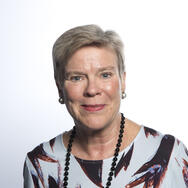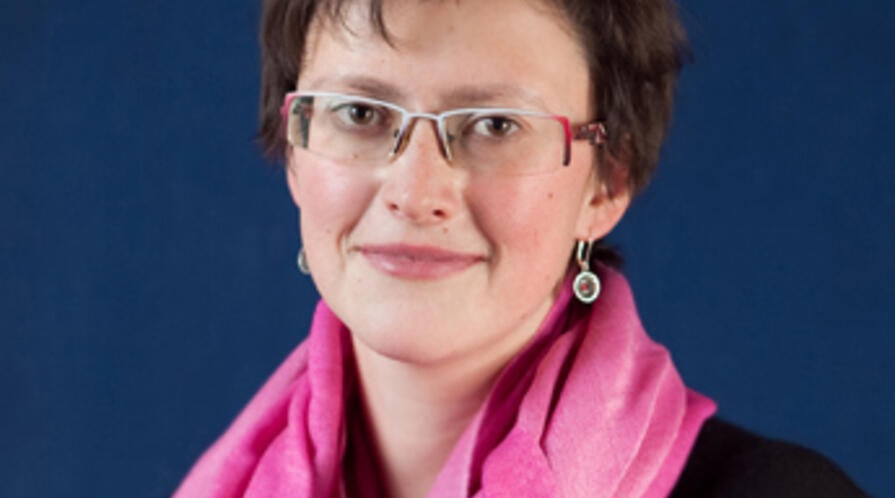Understanding Prigozhin’s Mutiny and What Is — and Isn’t — Happening in Russia
From June 23 to 25, the world watched as Yevgeny Prigozhin, head of the private militia Wagner Group, ordered his fighters to seize the military headquarters in the Russian city of Rostov-on-Don, demanded the resignation of Defense Minister Sergei Shoigu and Chief of General Staff Valeriy Gerasimov, and advanced his forces toward Moscow.
The rebellion posed the most significant threat to President Vladimir Putin’s power in his 23-year tenure as Russia’s leader. While the mutiny was abruptly called off following a deal brokered by Belarusian president Aleksandr Lukashenko, the effects continue to reverberate throughout Russia, Eastern Europe, and beyond.
Much is still unknown about the mutiny, Prigozhin’s exile in Belarus, and internal disputes within the Kremlin. But long-time Putin watchers and Russia experts agree that the events of the weekend have significantly weakened Putin’s image as an authoritarian strongman and sole commander of Russia.
Below, scholars from the Freeman Spogli Institute for International Studies offer their analysis of how the mutiny may impact Russia, Putin’s power, and the war in Ukraine.
Ongoing Problems for Putin
Kathryn Stoner
Writing in Journal of Democracy, Kathryn Stoner, the Mosbacher DIrector of the Center on Democracy, Development, and the Rule of Law, explains how the rebellion is both a symptom and cause of Putin’s instability as a leader:
“Putin’s rule relies on individual loyalties rather than institutionalized, transparent chains of command and responsibility. This allows him to retain unrivaled control over a hierarchy of patron-client relationships and to change policies quickly before any real internal elite opposition can coalesce. But the result of such a system is that it operates at the mercy of shifting loyalties and is therefore inherently fragile. The Prigozhin rebellion, therefore, is a symptom of this latent instability within Putinism.”
Stoner, who has written previously about the conditions that lead to regime changes in autocracies, offered her insights in The Atlantic on how Putin might try to recoup from the embarrassment caused by the rebellion:
“What does all of this tell us about what might now be going on in Russia and how Putin might pursue the war in Ukraine going forward? While to us Putin may look weak and ineffective, he will undoubtedly use his control over the Russian media to pin the rebellion on Ukraine, NATO, and Russia’s other enemies. He may even take credit for avoiding mass casualties in a civil war by making a deal with Prigozhin. Spinning the story as best he can, Putin himself will survive, although his carefully crafted myth of competence will be damaged. Over time, this might erode elite confidence, although it is unlikely to result in an open coup attempt anytime soon.”
Stoner believes that there is “much still to learn about all that has transpired,” but that one thing is certain: Putin’s ill-considered war in Ukraine has weakened his grip on Russia.
“Although this is not the end of the war or of Putin,” she says, “the Wagner rebellion might yet prove the beginning of the end of both.”

Kathryn Stoner
Impacts on Russia, Ukraine, and Beyond
Michael McFaul
The implications of the 72-hour mutiny will last much longer and extend much further beyond Rostov and Moscow, says FSI Director and former U.S. ambassador to Russia Michael McFaul.
Speaking with Madeline Brand of KRCW, McFaul outlined the difficult situation Putin now finds himself in.
“This whole series of events has made Putin look a lot weaker than he looked three or four days ago. The very fact that the Wagner group exists is a sign of weakness. Putin needs them because he couldn’t rely on his armed forces.”
Elaborating further on Putin’s dilemma, McFaul says:
“As those mercenaries were getting closer to Moscow, Putin went on TV and sounded very macho, calling Prigozhin’s men traitors and promising to crush them, but then four hours later, he capitulates and starts to negotiate. And now he’s given another speech where it sounds like he’s pleading with these mercenaries to lay down their weapons and join the Russian forces. That clearly shows he hasn’t resolved this Wagner crisis yet.”
McFaul predicts that Putin’s remaining partners are also taking note of his fumbled reaction to the rebellion.
“If you’re Xi Jinping watching this, the big bet you made on Putin as a partner in opposing the West is looking really problematic right now.”
What Chinese officials fear most, McFaul explained to MSNBC’s Jonathn Capehart, is instability and dissolution, both internally and amongst their neighbors. Historically, the collapse of the Soviet Union was a catastrophic event for Chinese Communist Party officials, and a lesson the current leadership is loath to repeat.
McFaul asserts that, “The longer Putin’s war in Ukraine goes, the more probable it becomes that Russia becomes more unstable. The longer this war goes on, the more likely it is we could see something like this play out over and over again. So I would hope that Xi Jinping understands that putting pressure on Putin to end the war in Ukraine is the best way to prevent chaos on China's borders.”
There are also important lessons the United States and its allies need to consider when evaluating the kind of support they are willing to give Ukraine as the war wears on.
“Putin capitulated very fast, and I think that says a lot about how he’s going to fight in Ukraine and whether he needs an ‘off ramp’ like we’ve been saying. We’ve heard all of these arguments that if he’s backed into a corner he’ll never negotiate. Well, this weekend Putin was in a corner, and he didn't double down. He didn't escalate. He negotiated,” McFaul observes.
Continuing this thought on his Substack, McFaul emphasized that, “The lesson for the war in Ukraine is clear. Putin is more likely to negotiate and end his war if he is losing on the battlefield, not when there is a stalemate. Those who have argued that Ukraine must not attack Crimea for fear of triggering escalation must now reevaluate that hypothesis. The sooner Putin fears he is losing the war, the faster he will negotiate.”
Or, as McFaul writes in Journal on Democracy, “Anything that weakens Putin is good for Ukraine. It is as simple as that.”

Fallout on Nuclear Security and Norms
Rose Gottemoeller
Throughout the full-scale invasion of Ukraine, there have been concerns about nuclear sabre rattling by Putin and Kremlin-backed propagandists. Writing in the Financial Times, Rose Gottemoeller, the Steven C. Házy Lecturer at CISAC and former Deputy Secretary of NATO offered this insight:
“The fixation with nuclear apocalypse seems to be the symptom of a wider anxiety that the west is bent on Russian dismemberment because of its aspirations in Ukraine. The Kremlin argues that it only wanted to resume its ancestral right to a Slavic heartland, but that the U.S. and NATO are seeking as punishment Russia’s full and complete destruction as a nation state.”
Gottemoeller has been quick to condemn Putin’s casual threats of nuclear use and clear in her recommendations to the U.S. administration and its allies to find constructive ways to keep nuclear arms talks open despite the war in Ukraine and setbacks like Russia’s suspension of its participation in the New START Treaty.
The Wagner takeover of Rostov-on-Don adds a new layer to the security concerns surrounding Russia’s nuclear posture. Looking at the evolution of Putin’s nuclear rhetoric over the last 18 months, Gottemoeller writes:
“Putin embraced nuclear weapons to keep the United States and its NATO allies off his back and out of his way as he pursued his adventure in Ukraine. It did not work out that way. The United States and NATO were not ready to fight inside Ukraine, but they were willing to do everything else to support Kyiv’s cause — economic, political, security and military assistance to ensure Russia’s defeat. Nuclear weapons failed Putin as a guarantee against external meddling.”
Turning to the events of the last week, Gottemoeller continues:
“We learned on June 24 that they are no help to him internally, either. He could not brandish nuclear weapons in the face of the Wagner Group uprising . . . Nuclear weapons are not the authoritarian’s silver bullet when his power is strained to the breaking point — far from it. In fact, they represent a consummate threat to national and global security if they should fall into the wrong hands in the course of domestic unrest.”
In light of Prigozhin’s mutiny, she urges global leaders to “focus on the problem, stop loose nuclear talk, and put new measures in place to protect, control and account for nuclear weapons and the fissile material that go into them.”

Rose Gottemoeller
The Unknown Unknowns of the Settlement
Steven Pifer
Major questions remain about the deal struck between Putin, Prigozhin, and Lukashenko. While Lukashenko has confirmed that the Wagner boss is now in Belarusian territory, it is unclear — and many feel, unlikely — that he will stay there in quiet retirement.
Weighing in on Twitter, Steven Pifer, an affiliate at the Center for International Cooperation and Security and The Europe Center, and a former U.S. Ambassador to Ukraine, acknowledged, “We likely do not know all carrots and/or sticks that were in play to lead to Prigozhin’s decision to end his mutiny . . . Something does not add up.”
Following up in Politico, Pifer added:
“The ‘settlement’ supposedly brokered by President Alexander Lukashenko of Belarus leaves Putin, who was invisible during the day except for a short morning TV broadcast, as damaged goods. It provided the impression that all was forgiven, likely because the Russian president feared the prospect of Prigozhin’s troops parading in Moscow — even if they lacked the numbers to take control of the capital. It is harder to understand Prigozhin. His demands went unmet, yet he ordered his troops back to garrison, accepted that they might join the Russian army that he detests, and meekly set off for Belarus. There clearly is more behind this ‘settlement’ than we understand.”

Steven Pifer
Understanding Russia and the War in Ukraine
For more commentary and analysis from FSI scholars about the war in Ukraine and events in Russia, follow the link to our resources page, ‘Russia’s Invasion of Ukraine’
Read More

Scholars at the Freeman Spogli Institute for International Studies offer insight on what Yevgeny Prigozhin’s mutiny may signal about Russia, Putin’s power, and the war in Ukraine.















